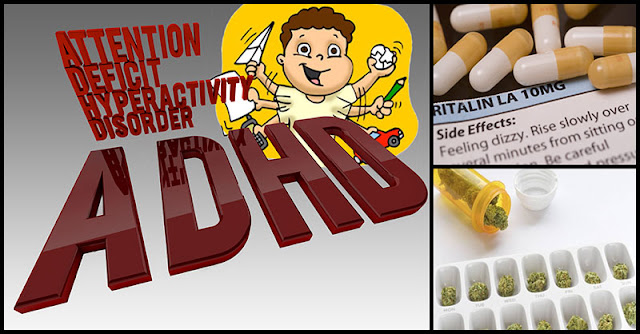What Is ADHD?
According to the Centers for Disease Control and Prevention (CDC), Attention Deficit Hyperactivity Disorder (ADHD) is one the most common disorders found in children. This condition can last until adulthood and still persist for many years.
The National Resource Center on ADHD reported that:
“Some of the most prestigious scientific-based organizations in the world conclude that ADHD is a real disorder with potentially devastating consequences when not properly identified, diagnosed and treated.”
According to a 2009 study, a person with this kind of disorder has a relatively low level of dopamine, which is a chemical messenger that helps in the transmission of signals in the brain and other vital areas.
Some of its symptoms are the following:
- Have trouble in controlling their emotions
- Have trouble in making goals
- Have trouble managing time and being organized
- Addiction
- Hyperactive and impulsive
- Often talks excessively
- Often distracted
- Often forgetful of daily activities
Though researchers are not able to pinpoint its exact cause, they have viewed environmental, genetic, and neurobiological factors to be the cause of trouble in the dopaminergic signaling system.
According to Children and Adults with ADD (CHADD):
“Although precise causes have not yet been identified, there is little question that heredity makes the largest contribution to the expression of the disorder in the population.”
Conventional Treatments
ADHD treatment involves behavioral therapy, which identifies the patient’s unwanted behavior and works towards reinforcing the desired behavior; and stimulant medications such as Ritalin and Methylin. Aside from being too expensive, these medications have also side effects such as hallucinations, nausea, insomnia, and stunted growth, thereby causing many patients to stop using them.
ADHD And Cannabinoid
In a study which was conducted to determine how cannabis treatment can affect the symptoms of ADHD in a sample of 30 patients who are non-responsive to Ritalin and Adderall, it was reported that there were improvements in their concentration, sleep patterns, and reduction in hyperactivity and impulsivity symptoms.
Moreover, a study in 2016 showed that Sativex (a cannabinoid medication with a 1:1 THC/CBD ratio) is effective in improving behavior and cognition in ADHD patients.
Dr. David Bearman, a “cannabinoidologist” said that:
“Cannabis appears to treat ADD and ADHD by increasing the availability of dopamine. This then has the same effect but is a different mechanism of action than stimulants like Ritalin and Dexedrine amphetamine, which act by binding to the dopamine and interfering with the metabolic breakdown of dopamine.”
There were many studies showing how cannabis can be a treatment for combatting the difficulties and symptoms associated with ADHD. For many people who were looking for a different treatment approach for this condition, cannabis is worth the try.









